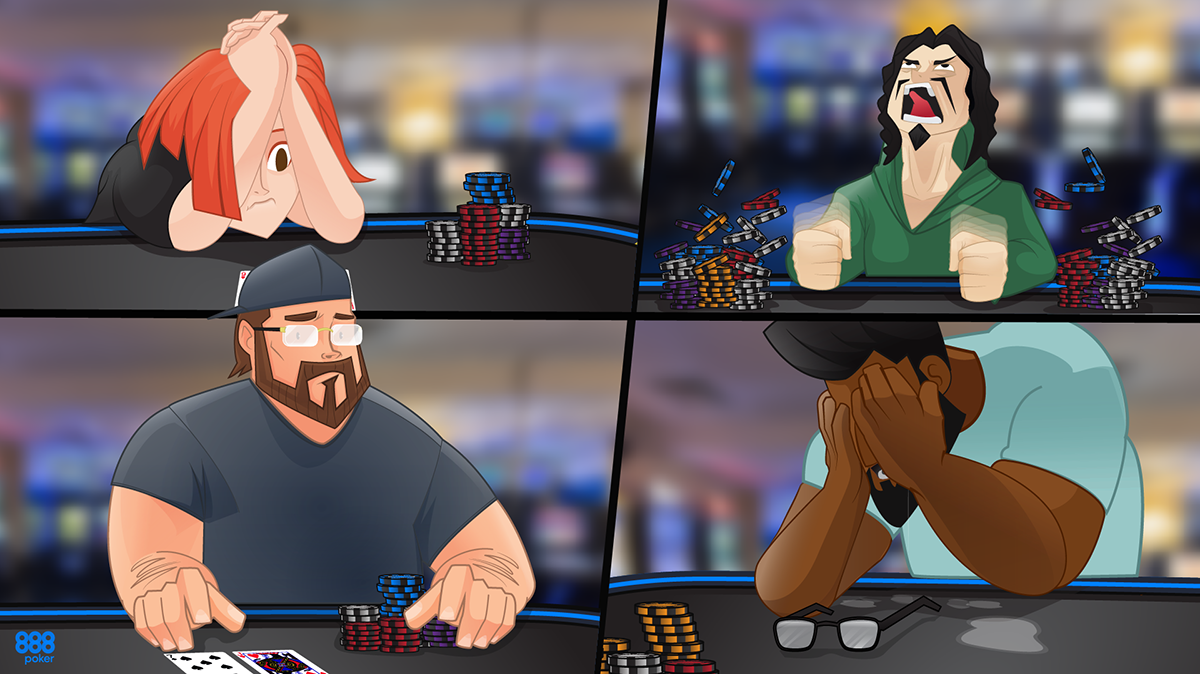Poker Emotions
Poker players know it’s absolutely essential to control those annoying personal signals friends know how to read: the right eye twitch or the left knee bob flashes “I’m not holding a great hand and feeling sick to my stomach” to everyone at the table. Believe me, they can tell.
Control of facial expressions and body language during a live game of poker is obviously beneficial to game outcome. But what about control of emotions when playing an online game of chance?
- Not showing emotion is a skill. No, it’s an art. And all those years of perfecting it will now pay off for you. Poker is, indeed, a psychological game, and by hiding your emotions, you’ll be much better off. When I first started to play I was absolutely amazed by the extreme adrenalin rushes experienced when playing poker.
- Poker and Psychological Realism A poker table is a great place to work through theories of psychology. Posted May 14, 2013.
- Emotions drive us into action, and at the same time they can make us act irrationally. The key to becoming a great poker player is not to eliminate emotions, but to learn to find the right balance between emotional thinking and logical thinking.
- Although the universality of basic human emotions has been recognized i, the role, function, and importance of emotional intelligence are often undermined. Emotional Intelligence is a social skill.
A good poker face is hardest for Feeling and Turbulent types to achieve. For these personalities, expressing their feelings – verbally or nonverbally – is a natural way of processing them. If this describes you, try not to be hard on yourself. There are worse things than allowing someone to see that you’re upset.
How’s your online poker face?
According to Jared Tendler and Barry Carter, (“The Mental Game of Poker”) emotional overload causes the brain’s higher functions to simply shut down. When a player is “too emotional”–worried, stressed at the current hand or giddy from a previous winning hand–the brain does not function at peak ability.
That’s a big problem. Even when players assemble to play a virtual game of cards.

Emotional control affects the abilities to plan, perceive, and organize. For example, the over-stressed poker player’s brain may improperly attach significance to some information while completely overlooking essential details. The player’s mind is foggy. He or she misses the key details of the latest hand, or draws a blank when prompted to take the next step.
An overactive mind short-circuits. Although it’s probably impossible to retrain the brain, or the body’s hard-wired fight-or-flight adrenal response, it is possible to repeat any skill until it’s mastered. That’s why the poker player needs to develop unconscious competence in the game.
Poker Game Emotions
Training the brain in poker skills
Repetition, along with memorization of basic card values and hands, is the most important way to train the brain for poker. Emotional mastery is possible, but less likely than knowing how to manage the mind-blank that’s likely to happen from time to time when playing poker.
Poker Emoticons
According to the Yerkes-Dodson Law(Journal of Comparative Neurology and Psychology, 18:459), a certain amount of excitement can positively stimulate the poker player, an excessive amount of emotion will work against him. In contrast, the tired or bored player must raise his emotional stakes to effectively play the game.
The Titan Poker Tutorial is an example of an online poker training course to prepare the brain for winning at poker. Repetition of the array of skills needed to consistently play poker well helps to lay down these skills into the unconscious memory.
Core poker knowledge
Gambling Emotions
Great poker players live and breathe poker. They dream about playing it. They read everything about the game they can get their hands on. Some people would ask Why? Poker has been around a long time. Surely people know everything there is to know about playing it.
To better form when the brain is “on tilt”, it’s essential to rely upon core knowledge. The new player knows he doesn’t know many things about the game. But the seasoned player may actually believe he’s “got it all.”
That sort of belief reflects a core weakness in the player’s competence. His knowledge base of poker may actually be out-dated or even old. Perhaps he’s formed bad habits over the years.
Continual assessment of the knowledge he’s in the process of learning is one of the ways to assess his core poker playing knowledge. He must rely on that level of playing strength when he literally draws a blank!
Poker Player Emotions
How to play better poker
Poker Emotions
Poker psychologists say it’s crucial to analyze personal strengths and weaknesses. For example, after assessing the strengths already mastered, it’s not as important to focus on them. However, analysis can help to the player to recognize how poorly he’s capable of playing: he can define his own level of poor performance without losing important perspective about it.
Read these next:
- Gaming
Gaming in Comfort and Style During COVID-19
- Gaming
Do You Think Esports Are Stupid? Then This Article is for You